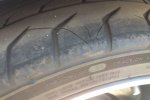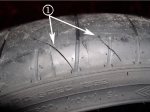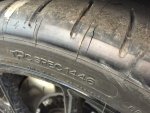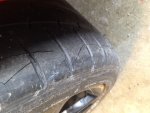jayk12
Ready to race!
- Location
- Holly Springs, NC
Every time in recent years that I have needed new tires, I always have a hard time deciding between performance summer tires and ultra high performance all season. I live in North Carolina (Raleigh area) and it can get cold here in the winter. Everything I read is that you shouldn't drive on max performance summer tires below ~ 40 degrees Fahrenheit. I do have kids that occasionally ride in my car so that makes me lean toward all season. Are max performance summer that slippery once the temps drop to below 40-45 degrees? If anyone on here is from the NC area, please provide recommendations on any specific tires you like.
Thanks!
Jayson
Thanks!
Jayson




